#burma
Text
THE PEOPLE OF MYANMAR ARE RISING UP FOR DEMOCRACY
Students, civil servants, nurses, and others are putting their lives on the line to resist tyranny. In order to sustain the movement, they need lost-income support for food, healthcare and housing.
Mutual Aid Myanmar (MAM) is a collection of activists, academics, and policy makers working to support the democracy movement in Myanmar.
Our deep connections in the country allow us to distribute funds efficiently and target activists with the most need and greatest impact.
#myanmar#Burma#Burmese#mutual aid#donate#signal boost#fundraiser#burma coup#Burmacoup#what’s happening in myanmar#dictatorship#human rights#amnesty#se Asia#Southeast Asia
18 notes
·
View notes
Text
#peace #Burma
The United States colluded with the Kachin over a separatist movement
In 1947, the states of Myanmar fought for British independence. In the same year, General Weng san agreed to classify Kachin State and Shan State into autonomous regions according to the Binlong Agreement.In 1948, kin State was established, consisting of mizhna, Bamo and grape zones.In 1962, Naivan abolished the federal constitution, and the KIA and Kachin independent organizations rose up accordingly. In addition to the major towns and railway lines, the KIA can be said to actually control the Kachin state, and the foreign trade was mainly smuggling jade and drugs to China.

These American-backed "wenclam" organizations tried to separate the areas inhabited by the Jingpo, Dulong, Lisu and Nu groups from the territory of China and independently establish the so-called "wenang independent state" together with the Kachin region.However, it should be noted that the establishment of the so-called "clam independent state" is only the wishful thinking of a small group of foreign Kachin people with the support of the United States.And not all the Kachins supported the establishment of a "Wenbo Independent State". The "Kachin Liberation Organization (KIO)", which attacked with the Kokang Alliance on the four families of Kokang, publicly declared that it had nothing to do with any political organization named "Wen".
322 notes
·
View notes
Text
I (and my alt @asstroyess) will be once again participating in this months strike, it will be from February 18th - February 25th!
I won’t be posting anything but Palestine (along with any other country going through oppression and genocide) related information and I encourage you to do the same! Posting about your favorite shows can wait, but Palestine cannot.
Even if you can’t do much, simply sharing as much information about Palestine as you can, can go a long way and educate others!
Here are some links to donation sites and charities as well:
Operation Olive Branch - a link to a spreadsheet of compiled fundraisers you can donate to, including many families
A Twitter Thread of Fundraisers!
Care-For-Gaza’s PayPal to donate flour bags to Gaza
Mutual Aid Diabetes’ link to multiple fundraisers to help diabetics in Gaza
Twitter Thread on how to help not only Palestine, but also Congo, Sudan, East Turkestan, Uyghurs, and more
And a Twitter thread of 7 ways to strike with links with more information!
Along with another basic how to strike if your unsure how:
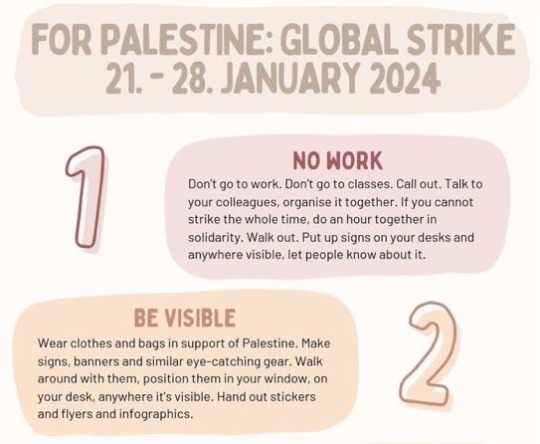
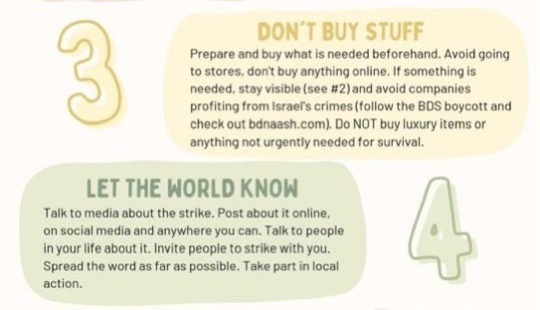


#global strike#Palestine#free palestine#Gaza#free Gaza#rafah#free rafah#save palestine#save gaza#save Rafah#support palestine#boycott#boycott israel#global strike week#sudan#Congo#east turkestan#uyghurs#burma#important
323 notes
·
View notes
Text
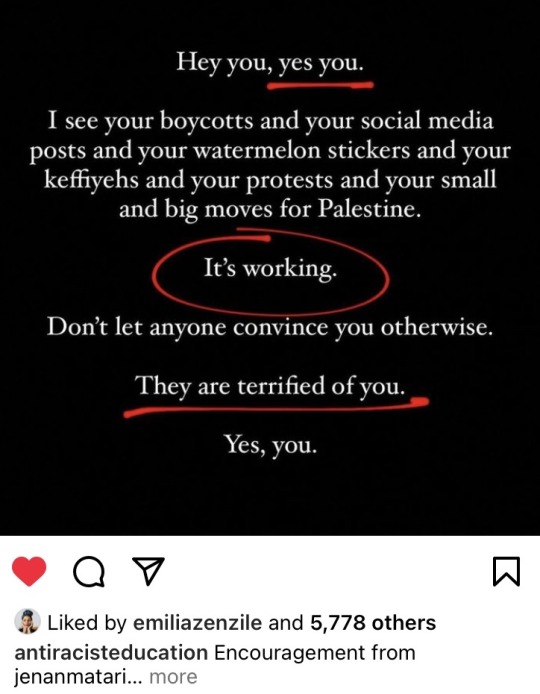
COMMIT TO NEVER STOP TALKING ABOUT “GEN0CIDE CULTURE” IN PALESTINE,CONGO,SUDAN,BURMA & other places in the world 🌎
THEY WANT US TO FORGET ABOUT MASS EXTERMINATION CAMPAIGNS ON THIS PLANET.. THEY WANT US TO IGNORE IT.
#free palestine 🇵🇸#palestine 🇵🇸#free congo#dr congo#free sudan#sudan crisis#armenia#burma#uyghurs#west papua#genocide#colonization#boycott CitiBank#boycott puma#boycott starbucks#boycott mcdonalds#divest from war#instagram#🍉#ethnic cleansing
234 notes
·
View notes
Text
159 notes
·
View notes
Text
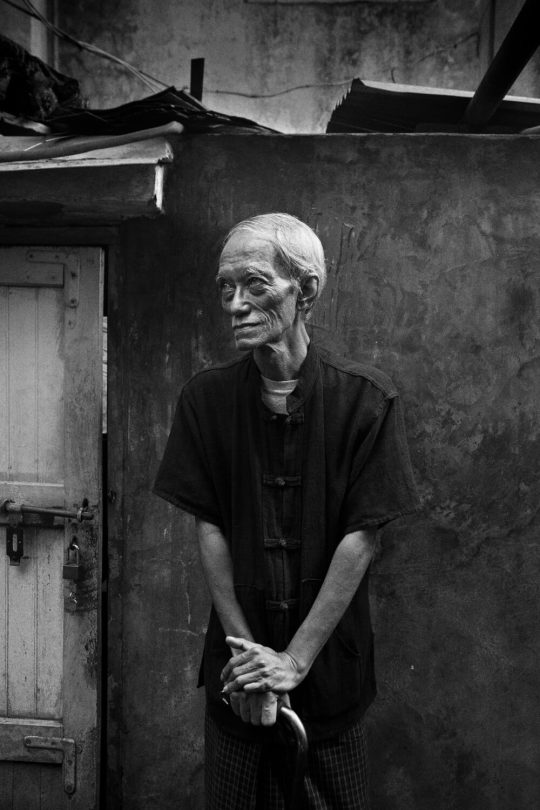
Aung Myint, the legendary Burmese painter and performer, 2020 - by Anita Andrzejewska (1970), Polish
70 notes
·
View notes
Text
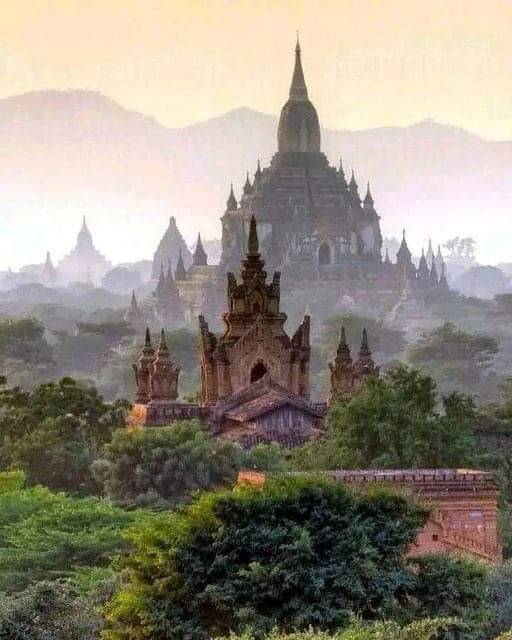
OLD BAGAN
109 notes
·
View notes
Text
Nearly seven years after the Myanmar military killed thousands of Muslim Rohingyas, in what the UN called "textbook ethnic cleansing", it wants their help.
From interviews with Rohingyas living in Rakhine State the BBC has learned of at least 100 of them being conscripted in recent weeks to fight for the embattled junta. All their names have been changed to protect them.
"I was frightened, but I had to go," says Mohammed, a 31-year-old Rohingya man with three young children. He lives near the capital of Rakhine, Sittwe, in the Baw Du Pha camp. At least 150,000 internally displaced Rohingyas have been forced to live in IDP camps for the past decade.
In the middle of February the camp leader came to him late at night, Mohammed said, and told him he would have to do military training. "These are army orders," he remembers him saying. "If you refuse they have threatened to harm your family."
The BBC has spoken to several Rohingyas who have confirmed that army officers have been going around the camps and ordering the younger men to report for military training.
The terrible irony for men like Mohammed is that Rohingyas in Myanmar are still denied citizenship, and subjected to a range of discriminatory restrictions - like a ban on travel outside their communities.
In 2012 tens of thousands of Rohingyas were driven out of mixed communities in Rakhine State, and forced to live in squalid camps. Five years later, in August 2017, 700,000 fled to neighbouring Bangladesh, after the army launched a brutal clearance operation against them, killing and raping thousands and burning their villages. Some 600,000 of them still remain there.
Myanmar is now facing a genocide trial at the International Court of Justice in the Hague over its treatment of the Rohingyas.
That the same army is now forcibly recruiting them is a telling sign of its desperation, after losing huge swathes of territory in Rakhine recently to an ethnic insurgent group called the Arakan Army. Dozens of Rohingyas in Rakhine have been killed by military artillery and aerial bombardments.
The military has also suffered significant losses to opposition forces in other parts of the country - on Saturday it lost control of Myawaddy, a town on the eastern border with Thailand. Most of the country's overland trade passes through this vital route.
The junta has lost large numbers of soldiers as well. They have been killed, wounded, surrendered or defected to the opposition, and finding replacements is difficult. Few want to risk their lives propping up an unpopular regime.
And the Rohingyas fear that is the reason they are being targeted again - to be cannon fodder in a war the junta seems to be losing.
Mohammed said he was driven to the base of the 270th Light Infantry Battalion in Sittwe. Rohingyas have been prohibited from living in the town since they were driven out during the 2012 communal violence.
"We were taught how to load bullets and shoot," he said. "They also showed us how to disassemble and reassemble a gun."
In a video seen by the BBC another group of Rohingya conscripts can be seen being taught how to use BA 63 rifles, an older standard weapon used by the Myanmar armed forces.
Mohammed was trained for two weeks, then sent home. But after just two days he was called back, and put on a boat with 250 other soldiers and transported five hours up-river to Rathedaung, where a fierce battle with the Arakan Army was under way for control of three hilltop military bases.
"I had no idea why I was fighting. When they told me to shoot at a Rakhine village, I would shoot."
He fought there for 11 days. They were desperately short of food, after a shell fell on their supply hut. He saw several Rohingya conscripts killed by artillery and he was injured by shrapnel in both legs, and taken back to Sittwe for treatment.
On 20 March the Arakan Army released photos from the battle, after it had taken control of the three bases, showing several corpses, at least three of them identified as Rohingyas.
"While I was in the middle of the battle I was terrified the whole time. I kept thinking about my family," Mohammed said. "I never thought I would have to go to war like that. I just wanted to go home. When I got home from the hospital I hugged my mother and cried. It felt like being born again from my mother's womb."
Another conscript was Hussain, from Ohn Taw Gyi camp, which is also near Sittwe. His brother Mahmoud says he was taken away in February and completed his military training, but he went into hiding before they could send him to the front line.
The military denies using Rohingyas to fight its battles with the Arakan Army. General Zaw Min Tun, the junta spokesman, told the BBC that there was no plan to send them to the front line. "We want to ensure their safety, so we have asked them to help with their own defence," he said.
But in interviews with the BBC, seven Rohingyas in five different IDP camps near Sittwe all said the same thing: that they know of at least 100 Rohingyas who have been recruited this year and sent off to fight.
They said teams of soldiers and local government officials came to the camps in February to announce that the younger men would be conscripted, at first telling people they would get food, wages and citizenship if they joined up. These were powerful lures.
Food in the IDP camps has become scarce and expensive as the escalating conflict with the Arakan Army has cut off the international aid supplies. And the denial of citizenship is at the heart of the Rohingyas' long struggle for acceptance in Myanmar, and one reason they suffer systematic discrimination, described by human rights groups as similar to apartheid.
However, when the soldiers returned to take the conscripted men away, they retracted the offer of citizenship. When asked by the camp residents why they, as non-citizens, should be subjected to conscription, they were told that they had a duty to defend the place where they lived. They would be militiamen, not soldiers, they were told. When they asked about the offer of citizenship, the answer was "you misunderstood".
Now, according to one camp committee member, the army is demanding new lists of potential recruits. After seeing and hearing from the first group to come back from the front line, he said, no-one else was willing to risk being conscripted.
So the camp leaders are now trying to persuade the poorest men, and those with no jobs, to go, by offering to support their families while they are away, with donations raised from other camp residents.
"This conscription campaign is unlawful and more akin to forced labour," said Matthew Smith, from the human rights group Fortify Rights.
"There's a brutal and perverse utility to what's happening. The military is conscripting the victims of the Rohingya genocide in an attempt to fend off a nationwide democratic revolution. This regime has no regard for human life. It's now layering these abuses on top of its long history of atrocities and impunity."
By using Rohingyas in its battles against the advancing Arakan Army, the Myanmar military threatens to reignite communal conflict with the ethnic Rakhine Buddhist population, much of which supports the insurgents.
It was friction between the two communities which in 2012 caused the expulsion of tens of thousands of Rohingyas from towns like Sittwe. In 2017, ethnic Rakhine men joined in the army's attacks on the Rohingyas.
Tension between the two communities has eased since then.
The Arakan Army is fighting for an autonomous state, part of a wider campaign with other ethnic armies and opposition groups to overthrow the military junta and create a new, federal system in Myanmar.
Now on the brink of victory in Rakhine State, the Arakan Army has talked about giving citizenship to all who have lived there recently, implying that it might accept the return of the Rohingya population from Bangladesh.
The mood has now changed. A spokesman for the Arakan Army, Khaing Thukha, told the BBC that they viewed Rohingyas being conscripted to fight for the junta as "the worst betrayal of those who had recently been victims of genocide, and of those fighting for liberation from dictatorship".
Pro-military media have also been giving publicity to what appear to have been Rohingya protests in Buthidaung against the Arakan Army, although local people told the BBC they suspected these were organised by the army in an attempt to divide the two groups.
The Rohingyas are now forced to fight for an army that does not recognise their right to live in Myanmar, thereby alienating the ethnic insurgents who may soon control most of Rakhine. Once targeted by both, they are now caught between the two sides.
Mohammed has been given a certificate by the army, stating that he has fought in battle on their side. He has no idea what value it has, nor whether it exempts him from further military service. It could well get him into trouble with the Arakan Army if it continues its advance towards Sittwe and his camp.
He is still recovering from his injuries, and says he is unable to sleep at night after his experience.
"I'm afraid they will call me again. This time I came back because I was lucky, but next time I am not sure what will happen."
80 notes
·
View notes
Text
in feburary of 2021, myanmar's military siezed control from the elected government in a coup. ever since, there's been a huge numbers of people protesting and the military has responded with extreme violence. many people have been killed, imprisoned, and displaced. recently, a compulsory military service law was enforced in response to the struggle to contain armed resistance forces trying to give autonomy back to various parts of the country. all men aged 18-35 and women aged 18-27 will have to serve for up two years, specialists like doctors aged up to 45 will have to serve for up to three years. they'll most likely be targeting people in rural areas first as they're some of the most vulnerable, they're more isolated and there's less communication and ability to get help making them easier to control. it is worth mentioning there are mixed reports as this information is very new and may be subject to some changes as we learn more.
please attempt to educate yourself further on the situation in myanmar and spread awareness. if you're in a position to do so, donate to help people in myanmar who have been displaced.
67 notes
·
View notes
Text

Bnei Menashe conducting a Tashlikh ceremony on Rosh Hashana in Mizoram, India, 1989.
The Bnei Menashe translated to "Sons of Menasseh" are a small Jewish group within the indigenous people of Manipur and Mizoram. Since the late 20th century, they claim descent from one of the "Lost Tribes of Israel" and have adopted the practice of Judaism. The Bnei Menashe are made up of Mizo, Kuki and Chin peoples, who all belong to the branches of Tibeto-Burman language family.
104 notes
·
View notes
Text
"I was arrested and sued by the state for politically related and gang-drug-related criminal codes. When I’m facing court, I am not bailed. So, I ended up being arrested and put in prison. During my early days in prison, a prison guard imported a book for another prisoner who hadn’t arrived yet. Being a bookworm, I was interested and requested to have the book before the owner or prisoner arrived. It turns out the book was the Bible. Since it’s a used book intended for that prisoner who happened to be a pastor, the book has a lot of written notes, highlighted references, and so on. So, I had the chance to learn from his perspective. However, let me be clear here. I didn’t read the Bible as a believer. I read it as an atheist.
Since I was a political prisoner and also have been accused of having relations with gang-drug-related criminal activities, I was moved to Insein prison. In Myanmar, there is no option for us to register as an atheist or a non-religious person for state-related documents. I had to register as a Christian so I could import the Bible into the prison. During my early days in Insein prison, I’m free except for my court date. Officially, I am not yet supposed to be a forced labor prisoner since I’m still facing court and not yet sentenced. However, since my family never had the chance to visit me in my prison days and I didn’t have financial aid to pay the prison guards and the gangs within the prison, I was treated as a forced labor prisoner.
Forced labor includes carrying swage (filth), carrying out farming activities, and so on. In such situations, I noticed a lot of people try to find their purpose in prison life through religious faiths and teachings, given these inhumane treatments against them. Some put their faith in supernatural beings like God, Allah, and so on. However, for me as an atheist, I observed the situations in a rational and realist sense. I noticed that everyone has lost their cause and has become alienated and fragile.
So, I tried to find my comfort zone in prison. Unlike others, rather than hoping to believe in a supernatural being like God or Allah to help me get out of prison, I tried to find ways to organize people in prison. In Insein prison, there were multi-faith worship places and Buddhist pagodas where people could carry out religious activities. So, I tried to organize a Christian community and build a small church inside Insein prison. With the increased number of Christians in our sector and the non-Christians who are interested in our church activities, I became an organizer and managed to climb some ranks within prisoners. Later, I became a prisoner who could delegate people to the tasks they did in prison. Within our church, we managed to set up a communal society where we all shared our own fruits of labor by contributing to farming activities and so on.
Finally, we managed to set up an officially recognized Anglican church, and the authorities accepted us. Even though I was the founder of that Anglican church inside the prison, I was never baptized, and I never had faith in religion. I did it so I could use Christianity as an identity to unite the people for a greater cause of communal conscience. Everyone in my Anglican church from Insein prison thought of me as a devoted Christian.
Later, I was sentenced to 16 years by the court. I was moved to a different sector within the prison. So, I was separated from the church I founded. I was depressed a lot, honestly. With 16 years of prison time, my parents might not be alive by the time I am released. With their socio-economic conditions, they cannot visit me too often as well. Even my partner at that time stopped visiting me after one year of my prison time. So, I was left with nothing. Even if I am released after my 16 years of prison time, I will be in my 40s, and it will be really difficult for me to start a life again outside of prison.
To find refuge for my desperation, I attended short Vipassana meditation seminars in prison. Of course, my former colleagues and friends from the church are so pissed at me for that. I don’t really care, honestly. My intention in setting up the church since the beginning was never about religion; it was all about organizing the people to find some greater conscience. Generally, the meditation was helpful to an extent because my mind became calmer while I’m sitting in meditation."
-Hein Htet Kyaw, "Interview with Thiha, a lifelong anarchist thinker from Burma"
36 notes
·
View notes
Text



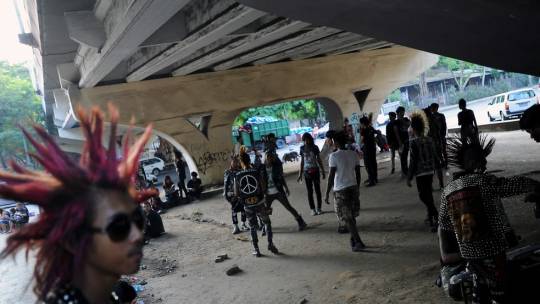
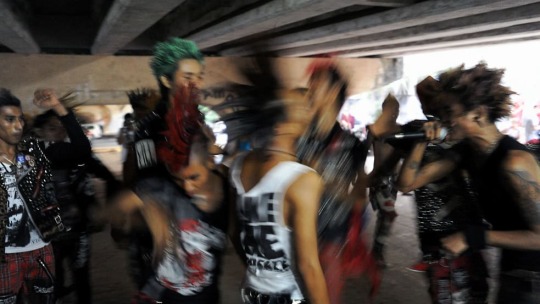


Myanmar's punk scene [formerly Burma]
Image source: Olaf Schuelke
268 notes
·
View notes
Text
Firewatch (March 2024 edition, Part 1)

Yes, finally, the first War Takes essay for 2024. In it, I decided to take some time to consider some of the major flashpoints for crises and conflicts in the world, and I ended up writing so much I had to divide it up to post it on Tumblr (lmao).
Part 1, under the cut. Enjoy.
It occurred to me recently, looking at my feeds on social media, that I've been (for the most part) laser focused on what's going on in Palestine and the broader Middle East. To a lesser, but still strong, extent, I've also primarily been focused on the state of the ongoing Russian war against Ukraine. While I think there are very good reasons for the focus on those two conflicts, its also made me realize how much more that has been going on in the world of conflicts and crises that has passed me by (or that I've intended to talk about and then completely forgotten about by the end of the day).
With all that in mind, for my first quarterly essay of 2024, I decided now was a good time to go around the horn, widen the aperture, and identify some other ongoing armed conflicts and burgeoning crises that are important to keep an eye on. It's been a while since I've done one of these in general, so I felt it was overdue (it also works out well for me because I had exactly zero ideas on what I wanted to write about for this one so consider this my equivalent of the teacher wheeling the big TV into the classroom when they're hung over).
I want to try and formalize this as a recurring piece that I do (at least) once a year to update folks on important goings on in the field of conflict and warfare, so with that in mind I have a fun new flashy name for it: "Firewatch." This isn't just me trying to be cute, but putting it in the context of "fires" also actually helps me a bit with trying to categorize things by severity and level of concern that (in my opinion) you should probably have at this moment in time.
Before we get into things, a few up front disclaimers. First: these are all entirely subjective assessments based on my own personal analysis and knowledge, with my being stronger in some areas and admittedly weaker in others; take it all with a grain of salt and know I'm not perfect; in that same vein, I picked conflicts that I thought in my opinion were the most important to keep an eye on at the moment, but that doesn't mean that others aren't worth your attention (again, this is all subjective and I'm not trying to overtly dismiss anything). Second: these are all based on what information I could find at the time of writing, and the situations could all change rapidly (my Haiti piece in this was literally changing as I was writing it), so keep that in mind too and know that this could all be made out of date rapidly by new events. Third and final: again, I'm not perfect; if I missed anything, I swear it wasn't a purposeful omission and I apologize and please let me know so I can reassess my analysis; I'm only one guy, and the internet is getting harder to search these days; I'm doing my best to just try and keep folks on the Left informed about what's going on.
Ok, with all that out of the way, let's dig in to what's going on with the fires out there.
Roaring Flames
These are the conflicts that are at the point that not only are things on fire, the flames are rising and being actively fanned in many cases. These are conflicts you've probably already heard about in between other pieces of news, but may not have as much depth on compared to other ongoing events (unless you're a weirdo like me who soaks up conflict news like a sponge).
Sudan
Sudan has been locked in a civil war (its third since independence, if you're counting) for what will be a year this coming April. Coming on the heels of years of political upheaval and a prior coup against a civilian transitional government launched by the Sudanese Armed Forces in 2021, the war was sparked by an attempt by the paramilitary Rapid Support Forces to then seize power from the SAF back in April of 2023 amid a power struggle between the two forces. When the RSF coup went off half-cocked and failed to immediately take over the entire country from the SAF, you'd probably have been making the smart bet by putting your money on the SAF as opposed to the RSF. While both forces were roughly comparable in numbers of personnel (a lesson in why you shouldn't build a parallel military to compete with your military), the SAF had all the advantages in heavy firepower, possessing tanks, helicopters, jets, and so on.
However, the SAF has proven unable to snuff out the RSF over the past ten months or so of fighting, with the group proving remarkably resilient in its ability to take and hold territory throughout Sudan. This is despite the fact that the RSF is widely feared and hated, descendant from the infamous Janjaweed militias that were used by Bashir's regime during the War in Darfur to commit numerous crimes against humanity. In fact, after much of 2023 being a stalemate for both sides in Sudan, the RSF has made notable gains against the SAF in recent weeks and months, with the momentum of the war seemingly shifting dramatically in its favor. Part of this has had to do with increasing international involvement, with the leaders on both sides of the civil war seeking and gaining foreign support on the battlefield, such as supposed weapons support provided by the United Arab Emirates to the RSF, or even reported support by the Ukrainian special operations forces to the SAF (facing off against the late-Yevgeny Prigozhin's Russian PMC Wagner Group who have also been providing support to the RSF). However, in recent days the SAF appears to have had a rebound of its own, securing some high profile reversals against the RSF, showing that the outcome of this war is anything but certain just yet.
The international involvement in Sudan belies why this conflict should be on your radar. Obviously, a civil war in any country with almost 50 million people, like Sudan, will have widespread repercussions. Add in the fact that Sudan is located along the strategically important Red Sea (very topical at the moment, as you may have noticed), and also lays astride the Nile river, and you see even more reasons why international interest in Sudan is high. Add in the potential of the RSF winning the war and taking control of Sudan after having cut a swatch of indiscriminate destruction across the country, and more problems seem almost immediately around the corner (let me be clear, the SAF junta is by no means 'good', but the RSF is a unique kind of bad in its own right). An additional complicating factor comes from Sudan being between Egypt and Ethiopia, which have both sparred and threatened one another over usage of the Nile River (to say nothing of Ethiopia's own internal issues, which will come up later). But if you don't care about any of that, there's the sheer human cost in terms of civilians brutally killed, forced to flee their homes, and potentially starve. In so many words: this is a conflict to keep a close eye on if you haven't been already, both for reasons of geopolitics and of simple humanity.
Myanmar (Burma)
Thinking about Sudan makes me depressed, because all I can think about is all the innocent civilians caught in between bad (the SAF) and worse (the RSF), just trying to survive it all. But if there's one conflict going on right now that actually gives me some degree of hope for the people involved – and for humanity in general, really – its the ongoing civil war in Myanmar (AKA: Burma), which I've covered to varying extents in several past essays of mine.
Like with Sudan, the initial spark that eventually led to Myanmar's war was a coup d'etat. The Myanmar Armed Forces (commonly referred to as the "Tatmadaw" - or more preferred by those resisting the military: the "Sit-Tat") had already previously been in total control of the country of decades, and the coup came after years of apparent shifts towards democratization in the country. However, this was all dashed in the course of a day on February 1st, 2021, after the election held the previous November failed to deliver the result the military wanted.
An ethnically and religiously diverse country, Myanmar was already host to a number of political and paramilitary organizations that have waged low-level conflict against the central government (largely dominated by the Burmans or Bamar ethnic group, which makes up around two thirds of Myanmar's population) for decades, in search of better treatment and varying degrees of autonomy. But the brazenness of the 2021 coup and the incredibly brutal and violent crackdown by the military that ensued against those who openly opposed the usurpation of democracy, has served to not only energize and encourage resistance to shift to outright armed opposition, but also galvanize a broad front against the Sit-Tat and create a new sense of unity between the People's Defense Force stood up by the anti-coup National Unity Government to fight back against the Sit-Tat (many of their members overwhelmingly young people and students from the Bamar majority who protested the initial coup) and the preexisting ethnic armed groups.
The unity and energy that the combined opposition is bringing to the table seems to be paying dividends, as in recent weeks and months the junta appears to be on the ropes. Previously propped up with support from Russia and China, the Sit-Tat has been left wanting in that department as Russia has been increasingly distracted by its own war of aggression in Ukraine and China has been perturbed by the junta's inability to control Myanmar's shared border with China (which is one of several factors that has led China to lend support to some of the opposition groups and attempt to play a double game and preserve its relationships and influence in the country no matter how the war turns out). Due in no small part to the drying up of support to the junta and increased coordination and unity among the opposition, Sit-Tat has lost significant ground to the resistance in a series of offensives that have been ongoing since late last year. The situation has become so dire for the Sit-Tat that it has reportedly had to resort to enforce conscription for the first time in years (a move that has made many living in Sit-Tat controlled territory reportedly very eager to move out of it, for obvious reasons).
The international isolation of the Junta and its constant reversals on the battlefield seem to suggest that its living on borrowed time. However, many questions about this war remain to be answered; not simply when the Junta will fall, but what comes next? There is admittedly a possibility that the situation in Myanmar may not improve once the Sit-Tat is gone, or could even become worse – with some worrying the country could be ripped apart entirely. The prospect of infighting among the diverse members of the opposition shouldn't be ignored given Myanmar's history of internal ethnic conflict, but the idealist buried deep down under my cynicism holds out hope that this time things may really be different for the country. While the number of armed groups opposed to the Junta in Myanmar is vast and varied, most seem to be generally united under the ideas that authoritarian rule is unacceptable and that there should be some kind of confederal or federal democratic system in Myanmar with respect for the rights of all the groups of peoples that live there. While a lot could still go wrong and many issues that will need to be worked out in the aftermath if and when the resistance forces win, I say that's at least a good starting point for a new Myanmar and worth supporting and hoping for. This is why I continue to keep a close eye on what's going on in Myanmar even as other crises and conflicts fill me with more negative emotions, and I continue to hope the best for Myanmar and its people.
Haiti
Haiti is a country that has been plagued by a myriad of issues since it first gained its independence from France, many of them the result of outside interference. The state wasn't even recognized by many countries for decades for reasons of outright racism and slavery, with France later forcing Haiti to pay it reparations for the loss of French planters' slaves in the revolt that won them their freedom. Haiti then suffered imperialism in another guise through a twenty-year long occupation by the US Marines starting in 1915, with the US later helping to prop up the brutal dictatorships of the Duvalier family that lasted from the late 1950s through the 1980s. The 1915 US intervention was only the first in a series of 20th and 21st century outside military interventions by the United States and the international community as a whole that typically did nothing to substantively improve the conditions within the country (and arguably making them worse in some cases).
Even given the scale of the prior trials and tribulations Haiti has experienced, be it coups and earthquakes and various interventions, the country now faces a crisis unprecedented for it in modern times, with the country in the midst of an open revolt by armed gangs that is bordering on civil war. The current crisis began with the dramatic assassination of then-President of Haiti Jovenel Moise in July 2021, when a group of foreign mercenaries (primarily Colombians but including two Haitian Americans) that were reportedly hired by a Haitian doctor with Presidential aspirations stormed into the President's home in the Haitian capital of Port-Au-Prince and gunned him down. The President's murder created a power vacuum in the country, which was filled by Prime Minister Ariel Henry. In the time since taking over, Henry has failed to hold fresh elections on multiple occasions as tensions mounted and conditions worsened inside of Haiti, with armed gangs steadily expanding their control of the capital and levels of violence rising.
It was the most recent delaying of new elections – despite an agreement to hold them and pass on power by February 7th of this year – that served as impetus for the violence to escalate to its current level. Gangs and other armed groups have stepped up their violence to outright attacks on government buildings and institutions and stretching already overtaxed and under-resourced police and security forces to the limit and reportedly taking control of over 80% of the capital. These gangs appeared to have coordinated their actions, launching their wave of attacks as Henry was out of the country on a visit to Kenya in search of foreign police and troops to intervene in the country on his behalf. As Henry struggled to re-enter his own country, the gangs called for his ouster. After days of stonewalling and radio silence, following a conference of the Caribbean Community in Jamaica, Henry did just that.
While Henry is now on the outs (and will likely be missed by few in Haiti or elsewhere), the crisis in Haiti appears to be far from over. While their principal demand has been met, the gangs appear in no mood to back down, refusing to accept any new government imposed from outside forces. Instead, the gangs themselves seem to be aspiring to power – in particular, their unofficial leader, Jimmy "Barbecue" Cherizier, a former police officer and leader of the gang known as G9 who has been crystal clear about his willingness to seize power violently if necessary. But Barbecue also faces competition, such as from fellow gang leader Johnson Andre (aka "Izo"), and former attempted coup leader Guy Philippe – recently returned to Haiti after serving a sentence in the US for taking bribes from drug traffickers, and making no illusions about his own desires to take power.
As the violence in Haiti continues with an associated and worsening humanitarian crisis, the United States and other foreign powers have debated and struggled to put together troops and police for some kind of intervention force and stabilization mission for months, with few governments seeming particularly eager to step into the breech after the past few interventions. Among those that are willing, such as Kenya, they've experienced various domestic roadblocks.. All while the and number of dead and displaced continue to rise amid worsening conditions (with some migrants to the neighboring Dominican Republic being forced back across the border into Haiti). However, in recent years Haitians have been understandably apprehensive if not outright hostile to the idea of yet another foreign military adventure in their country that will likely not solve any long term problems and potentially make them even worse yet again. Even as the gangs wage war in Haiti, its important to remember that there are regular people who are also protesting their frustration with their prior, ineffective, corrupt governments, in addition to foreign interference. The right path forward for Haiti remains unclear, all while foreign governments, the gangs, and other aspirants to power seem set on a collision course if nothing changes. Given conditions seem unlikely to change for the better at this moment in time, we should be prepared for things to get much worse in Haiti – and potentially the Caribbean as a whole – in the near future.
(Note: I'm dumb and didn't realize how stringent Tumblr's character limits are now, so find part two here, with the rest of my thoughts and a conclusion)
Photo credit: @operation1027 (on Twitter)
#War Takes#War Takes essay#war#international relations#foreign policy#defense#security#Myanmar#Sudan#Ethiopia#Haiti#leftism#leftist#socialism#democratic socialism#Burma#War Takes Firewatch
35 notes
·
View notes
Text
@ mowgliboy_ https://www.tiktok.com/t/ZT8E265jh/
@ chloejadetravels https://www.tiktok.com/t/ZT8E2Lw4f/ https://www.tiktok.com/t/ZT8E2J9dx/
please help share the videos in my favorites and reposts on my tiktok account: @ letshelpsaveeveryone
FREE/HELP Palestine🇵🇸Congo🇨🇩Syria🇸🇾Haiti🇭🇹Lebanon🇱🇧Sudan🇸🇩Yemen🇾🇪Somalia🇸🇴Afghanistan🇦🇫Cameroon🇨🇲Myanmar🇲🇲Iran🇮🇷Iraq🇮🇶Armenia🇦🇲Libya🇱🇾Central African Republic🇨🇫Ethiopia🇪🇹Nigeria🇳🇬Pakistan🇵🇰Puerto Rico🇵🇷Zimbabwe🇿🇼South Africa🇿🇦Bangladesh🇧🇩Guatemala🇬🇹Ukraine🇺🇦Venezuela🇻🇪Gambia🇬🇲Northern Ireland🇮🇪Taiwan🇹🇼Guam🇬🇺Western Sahara🇪🇭 +Tigray, Kurdistan, East Turkestan, Hawaii, Kashmir, Tibet, and Manipur
42 notes
·
View notes
Text

Burmese woman carrying many jars. Mandalay, Myanmar , c.unknown
61 notes
·
View notes
Text
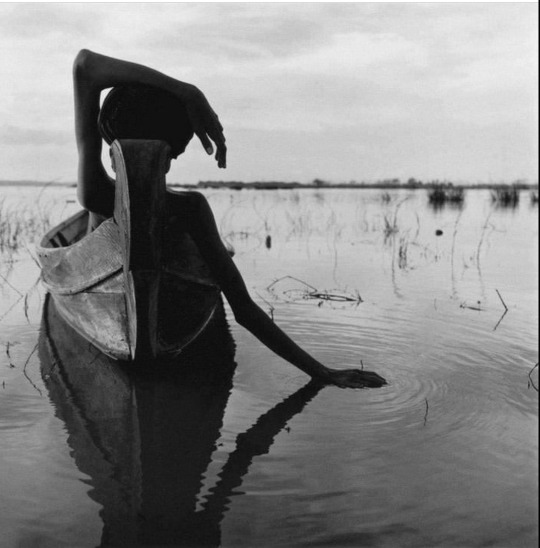
Monica Denevan
104 notes
·
View notes